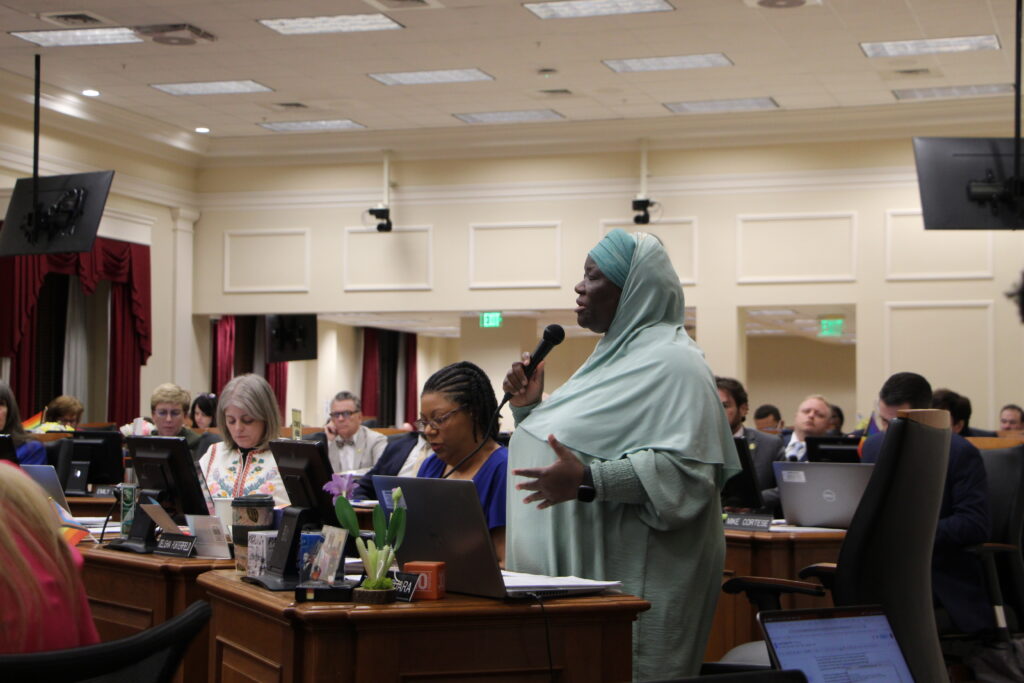
The American Civil Liberties Union has filed a lawsuit challenging a Tennessee law that criminalizes local officials who vote in favor of sanctuary city policies.
The law passed this year as part of a sweeping immigration package that aligned state efforts with the Trump administration’s focus on mass deportation. The omnibus bill also created a new immigration enforcement division, a separate driver’s license design for Tennesseans without citizenship and a grant program for local law enforcement agencies.
The lawsuit specifically challenges the part of the bill that makes it a felony for local officials to support or enact sanctuary city policies. Such measures — which try to limit cooperation between local government and federal immigration enforcement — are already prohibited in Tennessee under a state law from 2019.
The new Class E felony charge is punishable by up to six years in prison and a $3,000 fine. The law also says officials could be removed from office.
The ACLU of Tennessee filed the challenge on behalf of seven members of Nashville’s Metro Council, claiming the law violates the First Amendment.
The challenge also follows through on a promise that came swiftly from councilmembers after the law’s passage. At that time in January, the leader of the Metro Council’s Immigrant Caucus Chair released a terse statement: “See you in court.”
Plaintiffs include Councilmembers Clay Capp, Brenda Gadd, Delishia Porterfield, Sandra Sepulveda, Zulfat Suara, Terry Vo and Ginny Welsch. Councilmember Jeff Preptit is not a plaintiff, but is serving as co-counsel.
“This legislation makes it a felony for local leaders to do the job our communities elected them to do,” Preptit said. “Local leaders shouldn’t face criminal charges for passing policies that reflect the values and safety concerns of our neighbors — especially when those policies ensure trust between residents and local government.”
The lawsuit, filed in Davidson County Chancery Court, arrives less than one week before the law is set to take effect. It argues that the law criminalizes legislative speech, debate and deliberation that is protected under the First Amendment. It also alleges the law is unconstitutionally vague, failing to outline what conduct is prohibited, and invites “arbitrary and discriminatory enforcement.”
“This law is an extreme, unconstitutional attack on the legislative process and democracy as a whole,” Stella Yarbrough, ACLU-TN’s legal director, said in a statement. “Our local officials are elected to vote in ways that support their constituents. This overly broad, ill-defined law sets a dangerous precedent of state overreach and political retribution against elected officials simply for trying to do their jobs.”
This is not the only Tennessee immigration law facing a legal challenge. Also this week, a group of religious leaders and immigration advocates filed suit against a law that would impose criminal penalties for housing immigrants without legal status.

